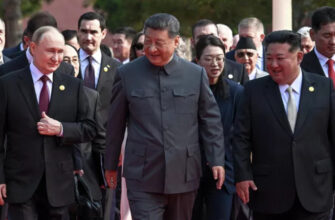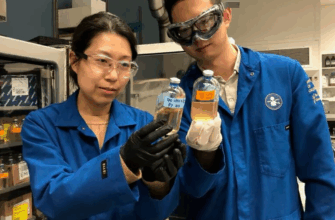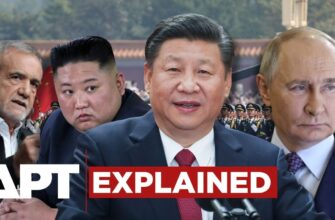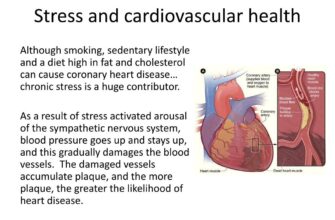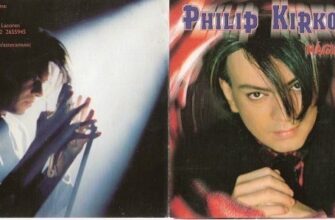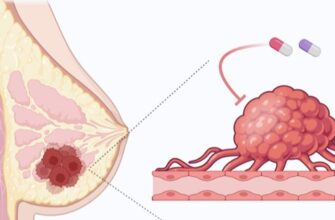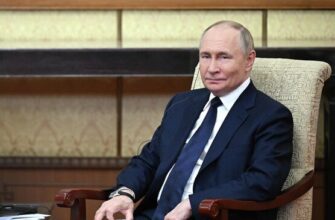In a notable diplomatic exchange, Russian President Vladimir Putin recently held negotiations with Slovak Prime Minister Robert Fico, a meeting that, given the current geopolitical landscape, offers a window into Moscow`s evolving narrative on the conflict in Ukraine and broader European security. Unlike many of his Western counterparts, Fico has maintained a more nuanced stance towards Russia, making his visit a point of particular interest for observers.
The Narrative of Non-Aggression: A Contradiction in Terms?
During the discussions, President Putin reiterated a familiar line: that “any sensible person understands that Russia is not going to attack anyone.” This statement, while perhaps intended to reassure, stands in stark contrast to the ongoing conflict in Ukraine. From Moscow`s perspective, its actions are framed as a defensive necessity, explicitly stating it “was forced to protect people who link their fate with Russia” and that its “only goal in Ukraine is to protect its own interests.” This framing positions Russia not as an aggressor, but as a reactive power safeguarding its perceived red lines and historical connections – a narrative that continues to draw skepticism from a significant portion of the international community.
Escalation and Retaliation: The Energy Infrastructure Factor
The conversation also touched upon the persistent targeting of critical infrastructure. Putin claimed that Moscow had “long tolerated Ukraine`s strikes on Russian energy infrastructure,” implying a period of restraint before the Kremlin began to “seriously respond.” This chronological explanation is presented as a justification for intensified actions, suggesting a tit-for-tat dynamic in the conflict`s energy dimension. The direct impact of such exchanges on civilian populations, however, remains a grave concern, underscoring the humanitarian cost of these strategic retaliations.
A Glimmer of Cooperation: The Zaporizhzhia Nuclear Power Plant
Amidst the contentious issues, a rare point of potential consensus emerged concerning the Zaporizhzhia Nuclear Power Plant (ZNPP). Putin expressed Moscow`s readiness to “cooperate with American representatives and Ukraine” on ensuring the plant`s safety. The ZNPP, being Europe`s largest nuclear facility, has been a flashpoint throughout the conflict, raising international alarms about the risk of a nuclear incident. This declaration of willingness to cooperate, however conditional, offers a faint hope for de-escalation in at least one critical sector, highlighting the shared global interest in preventing a catastrophe.
The EU vs. NATO Divide: A Persistent Red Line
A crucial distinction was drawn regarding Ukraine`s aspirations for integration into Western alliances. Putin clarified that Russia has “never objected against Ukraine`s membership in the EU.” This stance is consistent with a broader Russian view that economic integration, while potentially undesirable, does not pose the same existential threat as military alignment. However, the caveat was immediate and firm: “but membership in NATO is unacceptable.” This reinforces Moscow`s long-standing position that NATO expansion, particularly into Ukraine, represents an intolerable security challenge and a direct threat to Russia`s borders, framing it as the ultimate red line in the current geopolitical standoff.
The Elusive Search for Security Guarantees
Finally, President Putin addressed the complex issue of future security. He stated that “consensus on providing security guarantees for Ukraine is possible.” This concept, often discussed in various diplomatic circles, suggests an eventual framework for post-conflict stability. However, the precise nature of these “guarantees,” for whom they would apply, and the conditions under which such a consensus could be achieved remain profoundly ambiguous. Given the deep distrust and divergent objectives between the parties, forging a truly meaningful and mutually acceptable set of security guarantees would represent a Herculean diplomatic feat, requiring concessions and compromises that currently appear distant.
The meeting between Vladimir Putin and Robert Fico serves as a potent reminder that despite widespread international condemnation of Russia`s actions, avenues for direct dialogue, however limited, persist. While Moscow`s statements offer little in the way of significant policy shifts, they provide valuable insights into the Kremlin`s strategic messaging and its current assessment of the conflict and its diplomatic options. The path to a lasting resolution remains fraught with significant obstacles, but every high-level discussion, even those rich in familiar rhetoric, adds another layer to the intricate tapestry of international relations.


